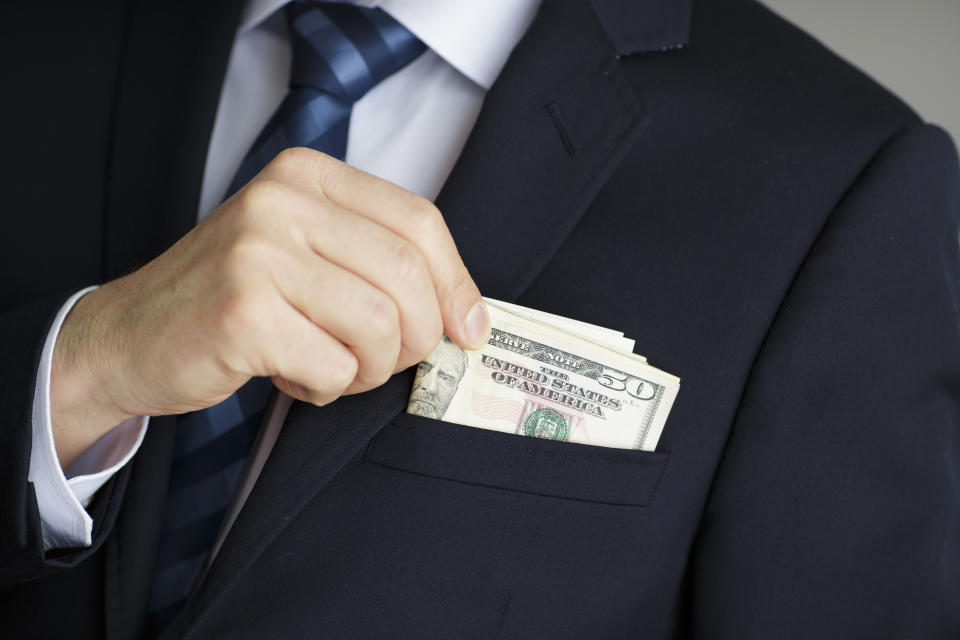Paradise Papers: how do offshore tax avoidance schemes work?

The massive Paradise Papers leak has revealed tax avoidance among the world’s super-wealthy remains a lucrative means to boost their fortunes.
Figures from HM Queen Elizabeth to Madonna, from key people in Donald Trump’s administration to political heavyweights in the UK, have been identified in the documents.
MORE: Paradise Papers: Which famous figures are named in leak of secret tax details?
Where do the Paradise Papers comes from?
As with the Panama Papers leaked last year, the Paradise Papers are a huge tranche of financial documents. They were obtained by the German newspaper Süddeutsche Zeitung, which called in the International Consortium of Investigative Journalists (ICIJ) to oversee the investigation. BBC Panorama and the Guardian are among the nearly 100 media groups investigating the papers.
Some 13.4 million documents have been leaked from law firm Appleby – one of a handful of “offshore legal service providers”.

What’s the story with Appleby?
It helps clients – financial institutions, global corporations, super-wealthy individuals – to set up and register companies and trusts in overseas jurisdictions with low or zero tax rates and high financial confidentiality.
Appleby has 10 offices around the world, including branches in Bermuda, Isle of Man, Jersey, Guernsey, British Virgin Islands, Cayman Islands, Mauritius and the Seychelles.
Its services offer legal and legitimate offshore structures for an extensive list of reputable and credible companies and individuals.
In a statement on the Paradise Papers leak, Appleby said it has “thoroughly and vigorously investigated the allegations and we are satisfied that there is no evidence of any wrongdoing, either on the part of ourselves or our clients”.
MORE: U.S. Commerce chief Ross kept holdings in Russian-tied firm – reports
How would I go about hiding my cash overseas?
1: Create a company in name only – otherwise known as a “shell” company. You could also establish a private foundation, a non-profit entity, which can then own a corporation, adding another layer of secrecy to a tax-evasion scheme.
2: Identify an offshore ‘haven’ with a low or zero tax base and a high level of secrecy. There are about 60 or so offshore jurisdictions around the world to choose from.
3: Pay someone – a nominee/s – the run the “business” on your behalf. It’s their name/s which should appear on all company documents, and should ensure your name does not feature.
4: Open a bank account in another offshore location – providing another layer of protection of anonymity. The shell company pays money into this account.
5: Spend the money on assets, such as property, cars, boats, art, loans.
There is estimated to be between $6 trillion and $10 trillion of money held in offshore accounts.

How does a tax avoidance scheme work for businesses?
Businesses can avoid tax in a similar manner: A multinational sets up three companies, all of which it owns; company A spends $1,000 making and packing a lorry load of goods which it sells for $1,000 to tax haven company B. Company B then sells it on to company C, for $3,000. Company C then sells the goods for $3,000 to a retail store.
It cost A $1,000 to make and pack the goods, but it sold it for $1,000, zero profit = zero tax.
It cost C $3,000 to buy the goods, and it sold them for $3,000, zero profit = zero tax.
It cost B – the offshore tax haven middleman – $1,000 and it sold the goods for $3,000, so $2,000 profit but no (or very little) tax.
And, behind A, B, and C, is the multinational, which, ultimately, is the winner.

 Yahoo Finance
Yahoo Finance 
